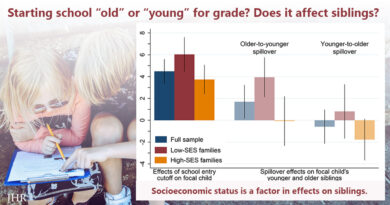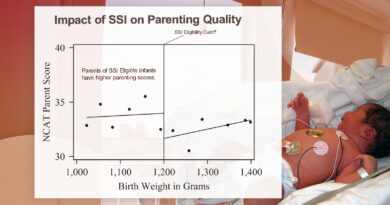How Can We Extend the Working Lifetime? Compressing Time Spent in School Might Not Be the Answer
In response to demographic change—an aging population means fewer workers—policy makers in many industrialized countries are looking for ways to extend individuals’ working life. Shortening the time spent in school is one idea, but simple reductions result in students learning less. Germany tried a different reform: it kept the number of hours that children spend in school the same, but compressed it into one less year. Thus, students have the same amount of schooling, just over a shorter period of time. Jan Marcus (University of Hamburg and DIW Berlin) and Vaishali Zambre (DIW Berlin) evaluated this reform and examined how higher education enrollment was affected.
Using administrative data on all students in Germany and exploiting the fact that the reform was introduced at different points in time across Germany, they were able to determine that compressing instruction time into fewer school years has some unintended consequences.
University enrollment rates dropped by about 6 percentage points. There were other negative effects: students are more likely to delay enrollment, to drop out of university, and to change their major. However, cost–benefit considerations show that the average earnings gain from an extended working life may offset these adverse effects.
So is it worth it? According to Marcus and Zambre, “The overall monetary reform effect is likely to be positive. However, the adverse effects obtained in this study strongly reduce the reform’s potential benefit. Increasing education efficiency by reducing the years of schooling while increasing weekly instruction hours sounds like a tempting policy option, but it does not come without unintended consequences.”
Read the full study in the Journal of Human Resources: “The Effect of Increasing Education Efficiency on University Enrollment: Evidence from Administrative Data and an Unusual Schooling Reform in Germany,” by Jan Marcus and Vaishali Zambre.
***
Jan Marcus is an assistant professor at the University of Hamburg and research associate at DIW Berlin. Vaishali Zambre is a research associate at DIW Berlin.




